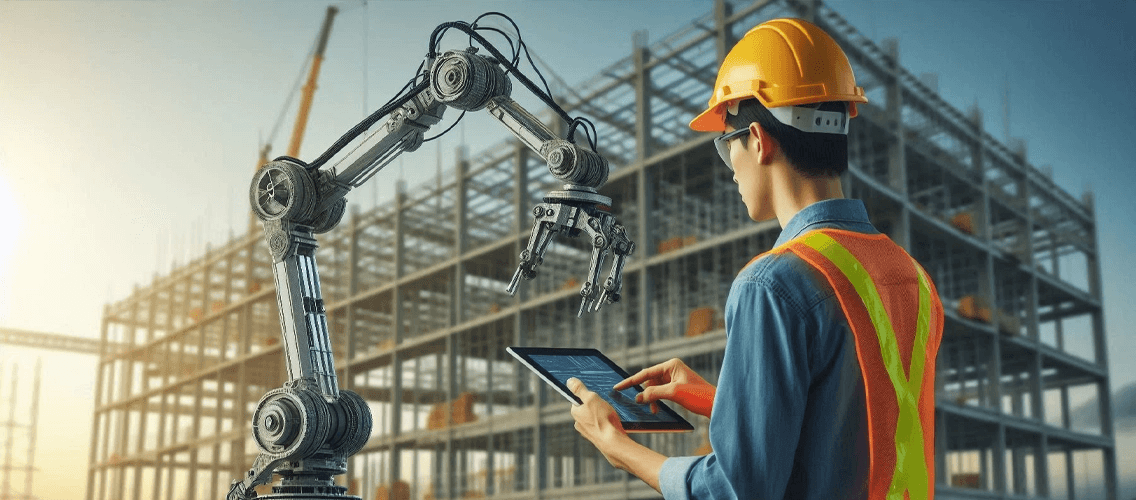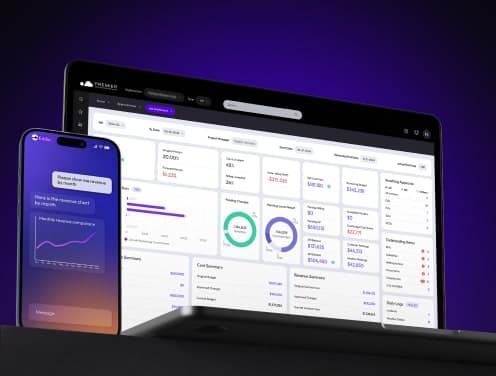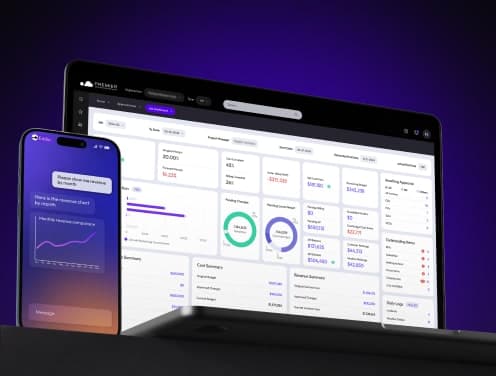
Artificial Intelligence in Construction Project Management
The ways that Artificial Intelligence (AI) has impacted our everyday lives are incredible. We now have programs that can create art, solve complex issues, and perform tasks that allow us more time to be creative. This is especially true in construction, where AI is allowing project management teams to work more efficiently, more accurately, and more intelligently. This guide will take a deep dive into the impacts of Artificial Intelligence in construction project management.
The Impacts of AI in Construction Project Management
Since the November 2022 release of ChatGPT, the most famous program to shake up the digital world, the use of AI is spreading like wildfire. Even the most basic construction software programs now include AI applications that are supercharging their capabilities. The following points will highlight the most significant impacts of AI on construction project management.
Optimizing Project Scheduling with AI
One of the biggest advantages of Artificial Intelligence in construction management is its ability to handle simple tasks automatically. With modern construction management software, companies can let AI algorithms assemble a smart, streamlined construction schedule that mimics critical path. The program can allocate the proper resources, labour, and equipment for the tasks. Beyond initial scheduling, and likely more importantly, AI can also adapt to delays. With human input, AI software can help project management teams restructure the schedule to best absorb the delays with full automation.
Advanced Risk Management Analysis Through AI Tools
Risk management is an ever-evolving process that requires data collection and analysis, constant attention, and a realistic, unbiased approach—three things AI excels at. AI software can identify potential risks hidden in trend data, predict impacts caused by weather, and even monitor project website cameras to assess site safety. Companies can also feed years of data into AI programs, including the types of risks, their frequency, and even cost data to allow the system to better chart each risk. The programs can then assess the most common risks the companies deal with, who was involved in the project, and even potentially how to avoid those risks in current or future construction projects.
Intelligent Design and Planning for Practical Solutions
It might seem counterintuitive for Architects and Engineers to take some of the active design work out of their projects, but these professionals need to leverage technology. Designers can use it to create renderings instantly, allowing clients to compare drawings, make suggestions, and arrive at their ideal design in a fraction of the time it used to take to create detailed renderings. AI can also help avoid mistakes during the design process. By using AI-enabled building information software (BIM), designers can verify that their drawings and designs will work as expected over time. They can also quickly turn a 2D plan into a 3D walkthrough-ready design that clients can virtually “tour” to ensure the layout meets their desires.
Trend Prediction and Cost Optimization with AI
As mentioned earlier, Artificial Intelligence in construction project management is ideal for data collection and trend verification. Construction firms that use AI can identify patterns that occur over years, such as the cost of materials according to the season, the common delays on their projects, and other historical data. This information is processed and analyzed automatically and accurately. With clean, useful data, construction companies make better decisions when it comes to resource allocation and budgeting. Also, AI can be particularly good at identifying cost discrepancies and inefficiencies. Some AI-powered budgeting software enables clients to identify where money is missing, how it can be better tracked, and even compare budgeted expenses against actual spending in real-time at extreme speeds with exact accuracy.
Streamlining Supply Chain Management Using AI
Construction companies can utilize Artificial Intelligence in construction management to manage their supply chains more effectively. AI’s ability to analyze data and look for trends allows companies to optimize the amount of inventory they have in stock and better predict their materials needs based on projects. There’s even software that can analyze drawings and specifications to create materials lists to streamline the ordering process. Also, AI systems can be programmed to reorder materials as they run out. This is a major shortcut on the road to Just-in-Time ordering, which allows companies to work successfully in extremely tight margins with very little overhead. With cameras, sensors, and other technology, AI in construction management can constantly analyze material levels and place the appropriate orders set by project management staff or based on trends and usage.
Driving Sustainability in Construction Projects
Project sustainability has been a hot topic in the construction industry for years. But, in almost every aspect of the project, AI can take it to the next level. Architects and Engineers can use AI to create more sustainable buildings to reduce energy consumption. This software can better optimize materials usage and waste, slowing the growth of landfills and better utilizing the natural resources required to create these products. AI in construction management can also be used for better urban planning, increasing green spaces, streamlining infrastructure, and creating more sustainable layouts. Similarly, these programs can help designers find new opportunities for integrating renewable energy sources like window power, passive solar heating, and solar panels into their designs.
Enhancing Safety and Workforce Training with AI
Jobsite safety is one of the most important aspects of successful construction project management. Injuries affect families, lifestyles, production, and morale. Luckily, AI can significantly impact job sites safer, and how it does this is interesting. Construction companies are already creating algorithms that automatically make their job sites safer. With cameras posted around job sites, the software can scan the pictures and look for hazards. It identifies risks such as staff not wearing the proper safety gear, fall hazards, and other dangers. These photos can be cross-referenced with safety records and injury reports to help the company better hone in on areas where they need more training. When it comes to training, AI can help create scenarios and supplement VR (virtual reality) training programs to help put staff through hands-on training with less risk. Administrative teams can choose which training to put their staff through, explain how to use new tools, or recognize risks based on the scenario.
Revolutionizing Off-Site Construction Practices
Off-site construction, whether modular, prefab, or standard fabrication, is becoming an increasingly important aspect of large construction projects. Teams are building larger portions of the project off-site, loading them on trucks, and delivering them to project sites for installation. AI helps streamline this process from both the construction and logistics angles. AI-powered software and autonomous robots make it easier for these crews to do their jobs. They can work faster by using robots to select materials and place them where they need to be so humans can assemble the finished product. Once finished, AI software programs can help get these components to the site. These programs can choose the best ways to transport these pods or assemblies over the road in the most efficient, streamlined manner possible. This better supports Just-in-Time ordering and sustainable building practices and reduces backups on the project site.
How AI is Shaping the Future of the Construction Industry
Like every other industry, AI is changing the construction industry and how projects are managed, and it’s doing so in a hurry. From the type of projects that are now capable to the improvements in sustainability and safety, AI is a vital tool that every construction team should start utilizing. Whether it’s using AI-embedded software or creating your own algorithm, implement AI in your construction project management practices today.





















